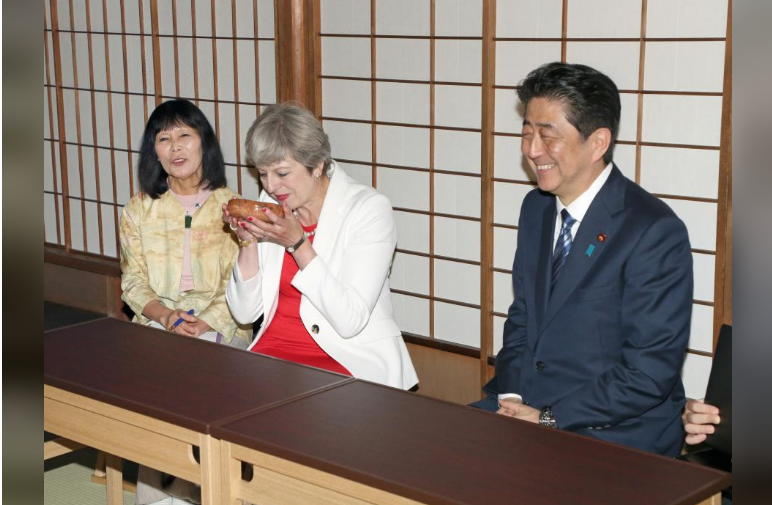Britain is looking at ways to replicate the trade deals that the European Union has with countries outside the bloc when it exits the EU in March 2019, Prime Minister Theresa May said Wednesday, according to Reuters’ report.
The freedom to strike new trade deals independently of the EU has been highlighted by the government as a benefit of Brexit. But businesses have voiced concern about how existing trade relationships will work after Britain has left the bloc.

Speaking on a business trip to Japan designed to reassure investors that the British economy will flourish after Brexit, May indicated that the first step in recasting Britain as a world leader in free trade would be to copy EU trade agreements.
“There’s obviously a number of trade deals that the EU has with other countries, and we are looking at the possibility of those being able to be brought over into, certainly initially, trade deals with the United Kingdom,” May told reporters on her way to Japan for meetings with Prime Minister Shinzo Abe.
“I think we will give businesses certainty, which is what business wants at the point at which we leave.”
After arriving in Japan, May also said Britain would later be able to change the terms of such trade deals.
“Once we’re outside the European Union, even if we start on the basis of an existing trade deal that a country has with the EU, it will be up to the United Kingdom and that country if we wish to renegotiate and change those terms in the future.”
British Prime Minister Theresa May (2nd L) takes part in a tea ceremony with Japanese Prime Minister Shinzo Abe (R) at Omotesenke Fushin’an in Kyoto, western Japan August 30, 2017.
The EU has trade deals with external countries such as Switzerland and South Korea and is finalising its own deal with Japan.
Until Britain’s EU membership ends it is unable to agree on trade deals with external countries, and it is unclear how easily or quickly an already-stretched British civil service could transpose EU deals into bilateral trade agreements.
The position on trade is consistent with May’s negotiating stance on several central issues of Brexit talks with Brussels: to replicate closely many of the existing arrangements Britain has as an EU state and then gradually introduce change.
That has drawn criticism from some euro sceptics who want to make a clean break with the EU, and EU officials who say Britain is looking to keep the benefits of membership without incurring the associated costs.
During a two-hour train ride between Kyoto and Tokyo late on Wednesday the two leaders discussed Brexit, with May talking Abe through the details of a series of papers published in recent weeks setting out her negotiating position.
May also told Abe that Britain was pushing for the completion of an EU-Japan trade deal, which could then be used as a model for a future British-Japanese trading agreement.
Formal trade discussions are scheduled for Thursday, after which both leaders will speak publicly at a news conference.







